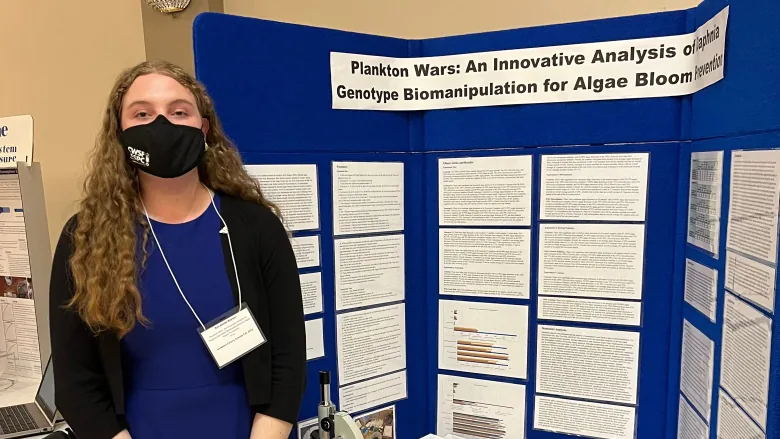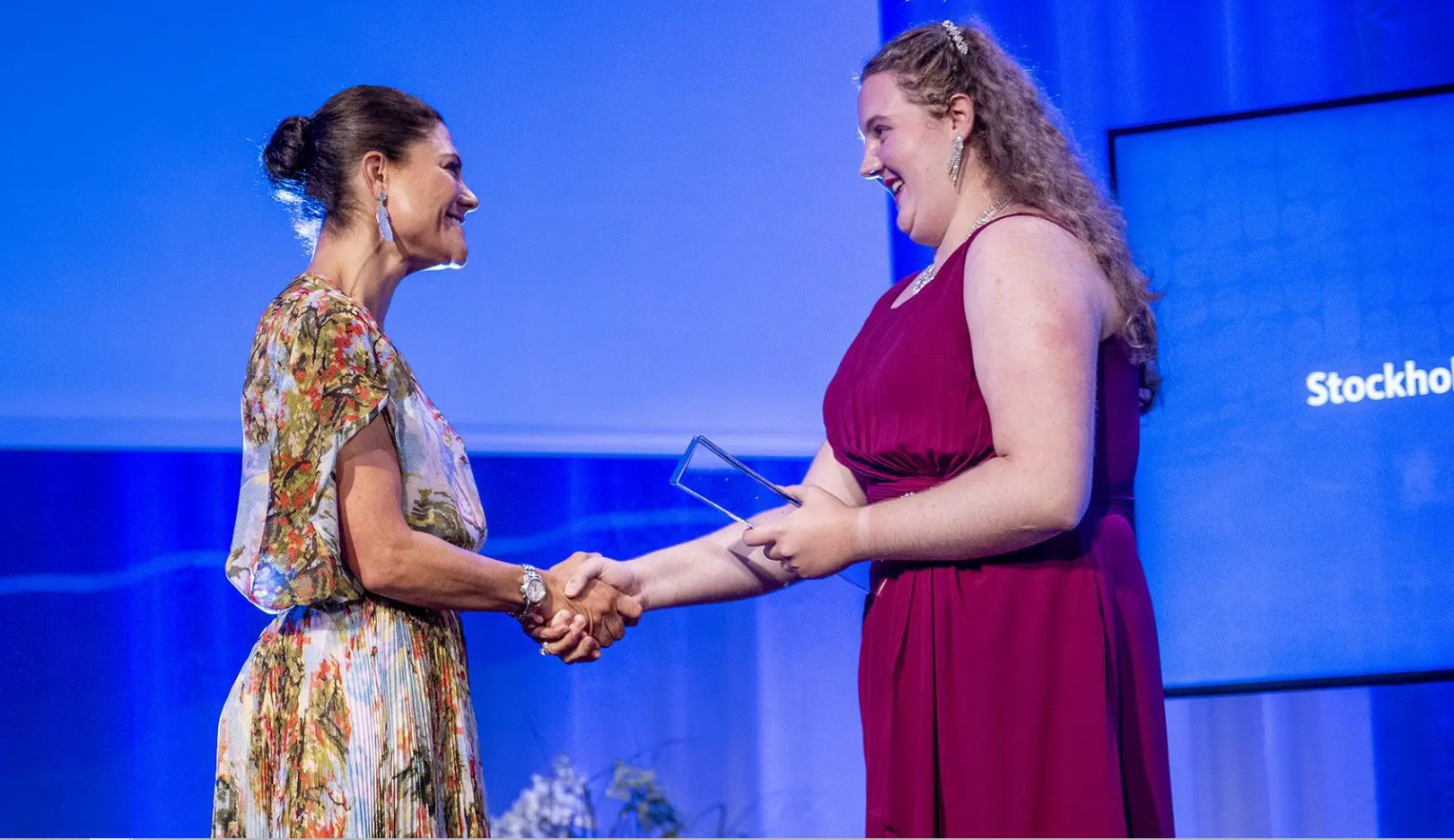SCWIST scholarship winner takes her freshwater research overseas
Back to Posts
Making waves with Annabelle Rayson
When Annabelle Rayson began investigating ways to treat and prevent harmful algae blooms in Lake Erie, she didn’t expect her science project would also lead to gold medals and international competitions.
The team at SCWIST first met Annabelle in February of 2022, when she applied for and received a Youth Skills Development Scholarship, which helps girls aged 16-21 cover the costs of extracurricular science-based camps or courses. From there, Annabelle’s relationship with SCWIST continued as she attended our Quantum Leaps conferences and participated in our eMentoring program.
After Annabelle’s summer attending SHAD Canada’s STEM lectures, labs and workshops courtesy of her $500 scholarship, she was ready to get back to her hometown in Ontario to get ready for her next adventure — preparing her latest science project for the international stage.
This project is especially important to Annabelle as it is focused on a topic she has been passionate about for years: how to better protect freshwater ecosystems from algae blooms.
Great lakes give great inspiration
Annabelle’s inspiration for this project came from her father, a commercial fisherman, whose work has been affected by the blooms. Algae are microscopic organisms that live in aquatic environments and use photosynthesis to produce energy. They are not generally considered harmful until they grow excessively and become a bloom. Algae blooms are harmful both environmentally and economically. They impact water quality and ecosystem diversity, cause dead zones and cost the fishing and tourism industries millions of dollars.
Through her rigorous research, Annabelle discovered that Daphnia magna, a species of freshwater zooplankton, can be used to treat and prevent algae blooms. For her science fair project, she compared the abilities of four genetically distinct genotypes of Daphnia magna to consume algae to see which one would be best at protecting freshwater ecosystems from algae blooms.
She then tested the most effective genotype in different environmental conditions to discover its success in the ever-changing Great Lakes. Through her research, Annabelle discovered that Genotype 4 is the ideal genotype of Daphnia magna to treat and prevent algae blooms. Genotype 4 can effectively do this in nutrient and plastic polluted environments and can have their health and success improved through calcium carbonate and naturally occurring aquatic microbes.
Hard work pays off
For her hard work and innovative research, Annabelle was awarded Best Senior Project and Best in Fair at her local science fair. She then went on to participate in the Canada-Wide Science Fair, where she won the following awards:
- Canadian Meteorological and Oceanographic Society and the Weather Network Award
- Canadian Stockholm Junior Water Prize
- Beaty Centre for Species Discovery Award
- Excellence Award – Gold (Senior Division)
- Challenge Award – Environment and Climate Change
- Best Senior Discovery Project (Platinum)
- Best Project Award – Discovery (Crystal)
Annabelle’s achievements in Canada have given her the opportunity to present her research in international competitions, with the most recent being the prestigious Stockholm Junior Water Prize competition, where students across the world aged 15-20 present research projects that can help solve major water challenges. Annabelle’s research was awarded the top prize, the Stockholm Junior Water Prize, surpassing projects from over 40 countries.

The future is bright
With her awards under her belt, Annabelle is now heading to the 2022 European Union Contest for Young Scientists in Leiden, Netherlands. From September 13th to 18th, students from around the world will showcase their scientific insights and achievements. We can’t wait to see what these future STEM leaders will show the world.
Stay in touch
- Want to learn more about Annabelle’s work? You can read her research paper or follow her on LinkedIn.
- Want to learn more about SCWIST’s opportunities for young scientists? Learn more about our Youth Scholarships. Also, make sure to follow us on Facebook, Twitter, Instagram and LinkedIn for up-to-date news and information!